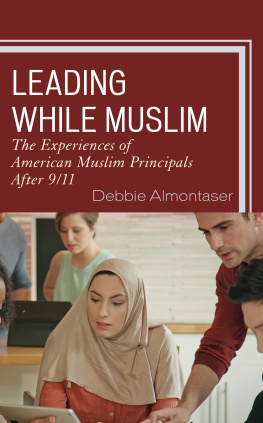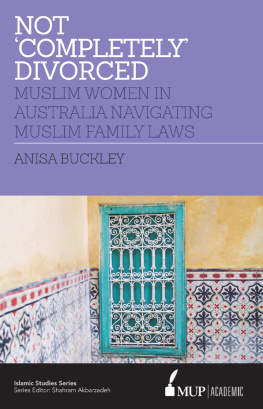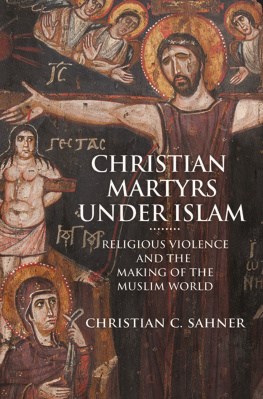Juliane Hammer - Peaceful Families: American Muslim Efforts against Domestic Violence
Here you can read online Juliane Hammer - Peaceful Families: American Muslim Efforts against Domestic Violence full text of the book (entire story) in english for free. Download pdf and epub, get meaning, cover and reviews about this ebook. year: 2019, publisher: Princeton University Press, genre: Politics. Description of the work, (preface) as well as reviews are available. Best literature library LitArk.com created for fans of good reading and offers a wide selection of genres:
Romance novel
Science fiction
Adventure
Detective
Science
History
Home and family
Prose
Art
Politics
Computer
Non-fiction
Religion
Business
Children
Humor
Choose a favorite category and find really read worthwhile books. Enjoy immersion in the world of imagination, feel the emotions of the characters or learn something new for yourself, make an fascinating discovery.

- Book:Peaceful Families: American Muslim Efforts against Domestic Violence
- Author:
- Publisher:Princeton University Press
- Genre:
- Year:2019
- Rating:4 / 5
- Favourites:Add to favourites
- Your mark:
Peaceful Families: American Muslim Efforts against Domestic Violence: summary, description and annotation
We offer to read an annotation, description, summary or preface (depends on what the author of the book "Peaceful Families: American Muslim Efforts against Domestic Violence" wrote himself). If you haven't found the necessary information about the book — write in the comments, we will try to find it.
An in-depth look at how Muslim American organizations address domestic violence within their communities
In Peaceful Families, Juliane Hammer chronicles and examines the efforts, stories, arguments, and strategies of individuals and organizations doing Muslim antidomestic violence work in the United States. Looking at connections among ethical practices, gender norms, and religious interpretation, Hammer demonstrates how Muslim advocates mobilize a rich religious tradition in community efforts against domestic violence, and identify religion and culture as resources or roadblocks to prevent harm and to restore family peace.
Drawing on her interviews with Muslim advocates, service providers, and religious leaders, Hammer paints a vivid picture of the challenges such advocacy work encounters. The insecurities of American Muslim communities facing intolerance and Islamophobia lead to additional challenges in acknowledging and confronting problems of spousal abuse, and Hammer reveals how Muslim antidomestic violence workers combine the methods of the mainstream secular antidomestic violence movement with Muslim perspectives and interpretations. Identifying a range of Muslim antidomestic violence approaches, Hammer argues that at certain times and in certain situations it may be imperative to combat domestic abuse by endorsing notions of protective patriarchyeven though service providers may hold feminist views critical of patriarchal assumptions. Hammer links Muslim advocacy efforts to the larger domestic violence crisis in the United States, and shows how, through extensive family and community networks, advocates participate in and further debates about family, gender, and marriage in global Muslim communities.
Highlighting the place of Islam as an American religion, Peaceful Families delves into the efforts made by Muslim Americans against domestic violence and the ways this refashions the society at large.
Juliane Hammer: author's other books
Who wrote Peaceful Families: American Muslim Efforts against Domestic Violence? Find out the surname, the name of the author of the book and a list of all author's works by series.






